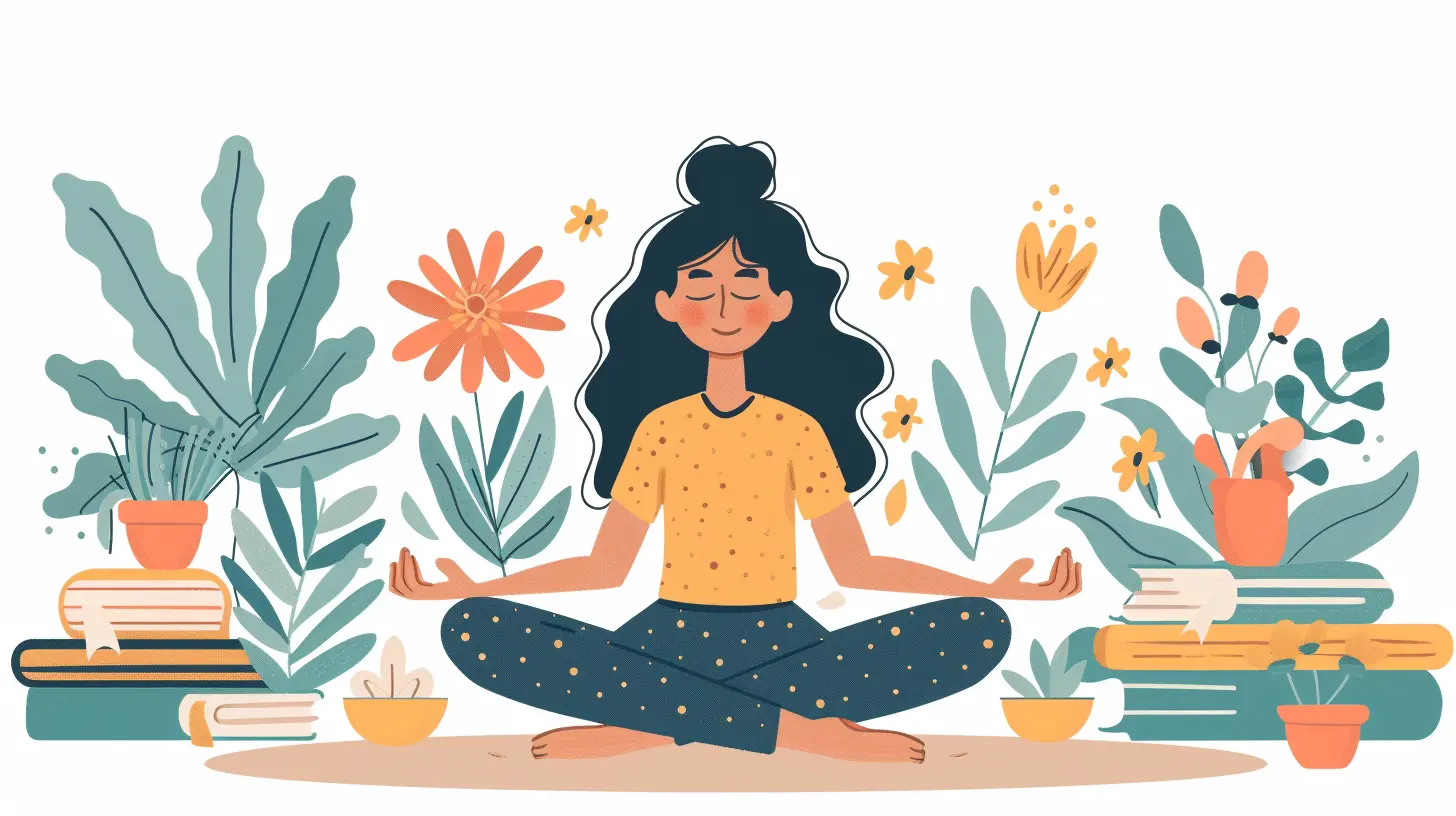How to Use Meditation for Long-Term Stress Relief
12 September 2025
Look, I get it — life’s a chaotic mess, your to-do list has its own zip code, and your idea of “relaxing” is doom-scrolling TikTok until your eyeballs ache. We've all been there, sipping cold coffee and pretending everything’s fine while your brain feels like it’s been set on fire. Enter: meditation. Yes, that ancient woo-woo practice where people sit around cross-legged like they just don’t have bills to pay. But hang tight — I’m about to convince you that meditation isn't just for incense-loving monks or that one friend who swears she cleansed her chakras last weekend. It’s actually the secret weapon for long-term stress relief — and no, you don’t have to wear yoga pants to do it (unless you want to, obviously).

Why Meditation Gets the Hype (And Deserves It)
First off, meditation isn’t just hype because your favorite influencer posted about it on Instagram with a blurry sunrise in the background. It’s been around for literal millennia — that means it existed before double-shot lattes, smartphones, and adulting.What does it actually do? In plain English, meditation helps you tell your anxiety to shut up, lowers your stress hormones, and makes your brain actually chill out instead of running laps like a caffeinated hamster. It’s like giving your mind a daily power nap while you're still awake. Magical, right?
The Science-y Stuff Behind Meditation (Hold the Boredom)
Not to go full "Bill Nye the Science Guy" on you, but let’s get geeky for a second. When you meditate, your parasympathetic nervous system — aka the “rest and digest” part of your brain — gets activated. That means your heart rate slows, blood pressure drops, and suddenly you’re not internally screaming anymore.On top of that, regular meditation increases gray matter in the brain. Translation? Better memory, focus, and emotional control. So if you’ve ever cried because your pizza delivery was late (guilty), meditation might just be your brain’s emotional adulting tool.

Types of Meditation You Can Try Without Feeling Like a Total Weirdo
Good news! You don’t have to chant in Sanskrit or become a full-blown yogi to meditate. There are different flavors for everyone — like a stress-relief buffet. Take your pick:1. Mindfulness Meditation
This is the Beyoncé of meditation styles. Simple, accessible, and iconic. You just sit, breathe, and try to notice your thoughts...without spiraling.How to start:
Sit down. Close your eyes. Breathe in. Breathe out. Notice your breath. When your mind wanders (because it will, because you’re human), gently bring it back. No biggie.
2. Guided Meditation
Perfect for those of us who need a little hand-holding (no shame). It’s like using GPS for your brain.How to start:
Grab an app like Headspace, Calm, or Insight Timer. Press play. Let someone with a soothing voice guide your squirrel mind to relaxation land.
3. Loving-Kindness Meditation
Also known as Metta meditation, this one is great if you’re feeling a little...murder-y. It replaces your inner rage with warmth and good vibes — even toward that one coworker who always books meetings at 4:59 PM.How to start:
Repeat phrases like “May I be happy,” “May I be safe,” and eventually extend those wishes to others. Yes, even your ex.
4. Body Scan Meditation
This one’s for tension hoarders (raise your hand if you store stress in your shoulders like it’s a carry-on bag).How to start:
Lie down, breathe, and mentally check in with every part of your body from head to toe. It’s basically a massage…without the awkward small talk.

When to Meditate (And No, You Don’t Need an Hour)
You don’t need to wake up at 4 AM to meditate like a Himalayan monk. 5 minutes is a solid start. It’s not about the length, it’s about consistency. Even the tiniest pause can make a difference. Think of it like brushing your teeth — except you’re flossing your brain.Best times to meditate:
- Right after waking up (before the chaos starts)
- Midday coffee break (without the coffee jitters)
- Before bed (to stop the 27 open thought-tabs playing in your head)

Real Talk: Meditation Is Not Magic (But It's Close)
Let’s be real: meditation won’t solve all your problems. Your landlord won’t lower your rent just because you’ve mastered deep breathing. But it will change the way you handle stress — and that’s huge.Meditation builds resilience. It’s like armor for your brain. So when life throws curveballs — whether it’s traffic jams, deadlines, or emotional breakdowns in aisle 7 of Target — you respond instead of overreact. You pause. You breathe. You don’t throw your phone across the room. Growth!
The Long-Term Benefits (Because We're Playing the Long Game Here)
Okay, let's talk about why consistent meditation is basically a long-term investment — like a 401(k) for your mental health.1. Reduces Chronic Stress
Stress isn’t just feeling overwhelmed. Chronic stress is sneaky — it destroys your sleep, messes with your digestion, and cranks your anxiety up to 11. Meditation acts like a pressure release valve. Over time, your brain becomes less reactive and more chill. Boom!2. Improves Sleep Quality
Can’t fall asleep because your brain suddenly wants to rehash that awkward thing you did in 2012? Meditation helps quiet the mental noise, making it easier to slip into snooze mode. You’ll sleep deeper, longer, and maybe even stop punching your pillow out of frustration.3. Boosts Focus and Productivity
Here’s a fun fact: your brain LOVES distractions. Meditation trains it to actually stay on task. So if you’re tired of rereading the same email eight times and still having no clue what it says, meditating might help you actually finish things. Revolutionary.4. Supports Emotional Wellness
Regular meditation helps you sit with your emotions without letting them drive the bus. You become more self-aware, less reactive, and better able to handle whatever emotional dumpster fire shows up that day.5. Enhances Self-Awareness
Want to become more you? Meditation helps peel back the layers of stress, anxiety, and social conditioning so you can actually hear yourself think. You stop operating on autopilot and start showing up like you mean it.
Meditation Misconceptions We Need to Yeet
Before you start thinking meditation is only for barefoot hippies whispering to plants, let’s debunk a few myths:"I don’t have time"
If you have time to scroll through 47 memes or binge 3 hours of reality TV, you have time to meditate. Sorry, not sorry."I can’t clear my mind"
Plot twist: you're not supposed to. Meditation isn’t about banishing thoughts. It’s about noticing them without spiraling like you're in a drama reboot of your own life."I tried it once and it didn’t work"
Cool. I went to the gym once and didn’t come out looking like Dwayne “The Rock” Johnson. Like everything else, meditation takes practice — not perfection.How to Stick With It (Because Consistency > Intensity)
Ready to jump in but worried your motivation will ghost you after Day 3? Here’s how to keep it going:- Start small: 3-5 minutes a day. That’s it. If you can scroll, you can meditate.
- Stack it with a habit: Meditate after brushing your teeth. Your brain loves routines.
- Make it comfy: Light a candle, use a cozy blanket, or sit by a window. Vibes matter.
- Don’t overthink: Some days it’ll feel pointless. Some days it’ll feel amazing. Do it anyway.
- Track your progress: Use apps or a journal. Watch yourself grow. Flex those mindfulness muscles.
Final Thoughts: Meditation Isn’t a Quick Fix — It's a Lifestyle Tune-Up
Meditation isn’t going to turn you into a zen master overnight. But it will slowly transform how you deal with life’s inevitable chaos. And honestly? That’s way cooler. You might still have stress, but instead of letting it hijack your sanity, you’ll be calmly sipping tea in the driver’s seat. That’s the real win.So go ahead, roll out a metaphorical (or literal) mat, take five minutes, and breathe like your peace depends on it — because it kind of does.
all images in this post were generated using AI tools
Category:
Stress ManagementAuthor:

Gloria McVicar
Discussion
rate this article
1 comments
Darius Hamilton
Practical tips, but consistency is key.
October 11, 2025 at 5:03 AM

Gloria McVicar
Absolutely! Consistency amplifies the benefits of meditation, making it a powerful tool for long-term stress relief.


